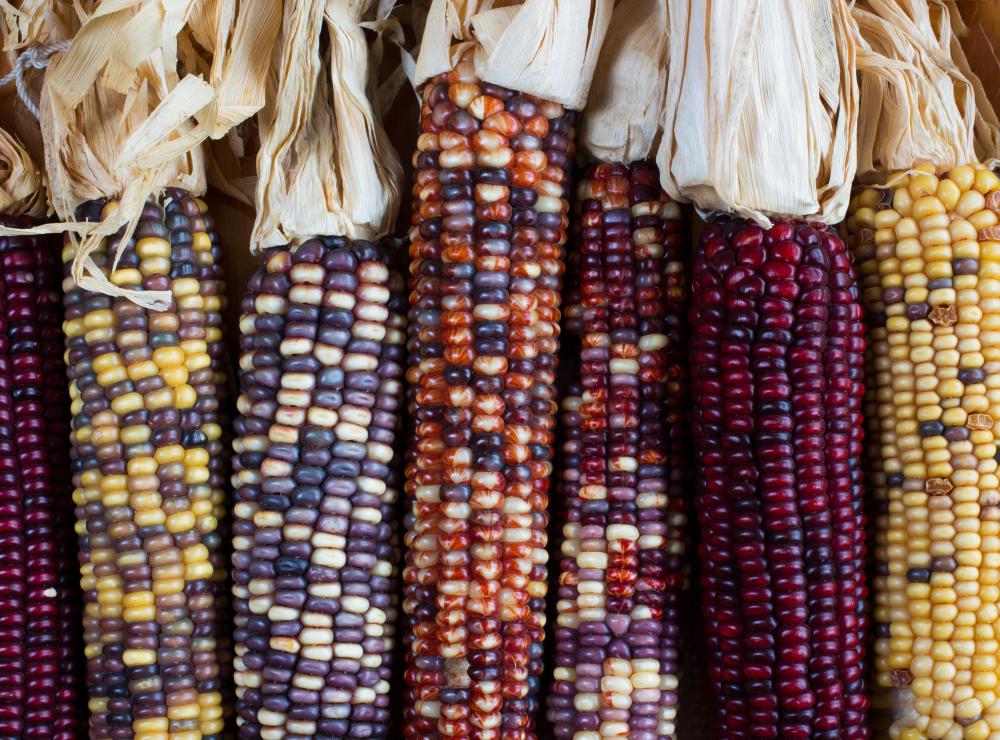At WiseGEEK, we're committed to delivering accurate, trustworthy information. Our expert-authored content is rigorously fact-checked and sourced from credible authorities. Discover how we uphold the highest standards in providing you with reliable knowledge.
How do I Choose the Best Vegetable Seeds?
Summer vegetable gardens are an enjoyable and useful project for families or individuals who want to turn unused land into a resource. The best choice for vegetable seeds depends on how large a space is available, what types of vegetables grown best in a given area, and personal tastes. There are many different varieties of each types of vegetable available, so gardeners should weigh taste and growth capabilities together with regional advantages.
Consider the size and scheme of the garden. A small garden is not conducive to growing large vegetables like squash, as these ground vine plants need a lot of room to grow out and won't produce good fruits if confined. If it is a small garden, consider adding a trellis to grow climbing plants upwards instead of out.

The best garden has vegetable seeds that will produce throughout the growing season. Choose some varieties that will flower in the early, middle and late summer and a few that will produce fall vegetables. For example, green beans produce starting in the early summer through the season, corn in mid to late summer, and squash or pumpkin in the Fall. A garden is a lot of work, and most don't want to reap the benefits in a single harvest and be done.

There are a variety of ways to purchase seeds. Anyone can walk into a home and garden center or superstore and find seed packets available from the time that spring is first in the air. These packets simplify the process by providing information like best time to plant for a given region, expected harvest date, and instructions for planting. These instructions will generally tell how far apart to plant the seeds and how many to place in a hole.

Local farmers can provide some of the best seeds for a given area. They have the experience and know-how to only plant the most productive plants for their particular location. Many farmers who run road side or on-the-farm stands will also sell vegetable seeds to interested buyers who request it.
For those that enjoy variety, heirloom vegetable seeds are the way to go. Heirlooms are vegetable varieties that have been around for 50 years or longer and are preserved by dedicated growers. They produce large identical plants from seed and offer varieties that can't be found in the supermarket. They are regarded by small growers as some of the most tasty plants on the market.

Many large growers provide heirlooms in seed packets, but to find the most unusual types gardeners turn to those who specialize in heirlooms. These organizations are usually called a "seed exchanges." Some exchanges are online, while others have growers' conventions where vegetable seeds can be exchanged or purchased. Finding rare heirlooms is a sure fire way to grow vegetables that the neighbors won't have!
AS FEATURED ON:
AS FEATURED ON:














Discussion Comments
@ocelot60- I also enjoy growing plants from my own seeds, and I have a tip for drying the out quickly.
If you don't have a lot of space to dry out seeds, you can use a hair dryer to speed up the process. Just be sure to put it on a low air setting so that the air doesn't blow your seeds away.
I like to plant vegetable seeds that I produced myself from previous crops. This is a fun, easy, and inexpensive way to plant your favorite vegetables each year.
Whether you like to grow pumpkins, peppers, tomatoes, or beans, or a variety of vegetables, all you need to do is allow some of them go to seed on the plants at the end of the growing season. In other words, don't pick them for use, but let them become overly ripe.
In late fall before the first frost, take your seed vegetables and remove the seeds. Set them aside in a flat container in an indoor area that gets a lot of sun so they dry out. This process usually takes several weeks.
Once your seeds are dry, put them in airtight contains or envelopes and put them aside for the next growing season. You can do this year after year with vegetables, fruits, and even flowers so you always have plenty of seeds for your favorite plants when the next growing season rolls around.
Post your comments